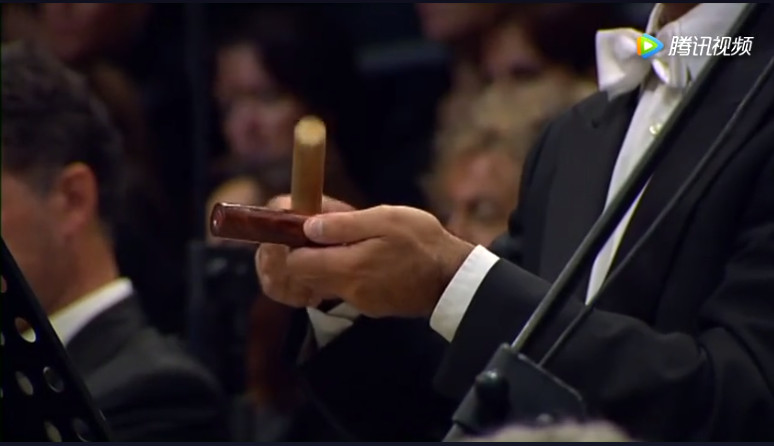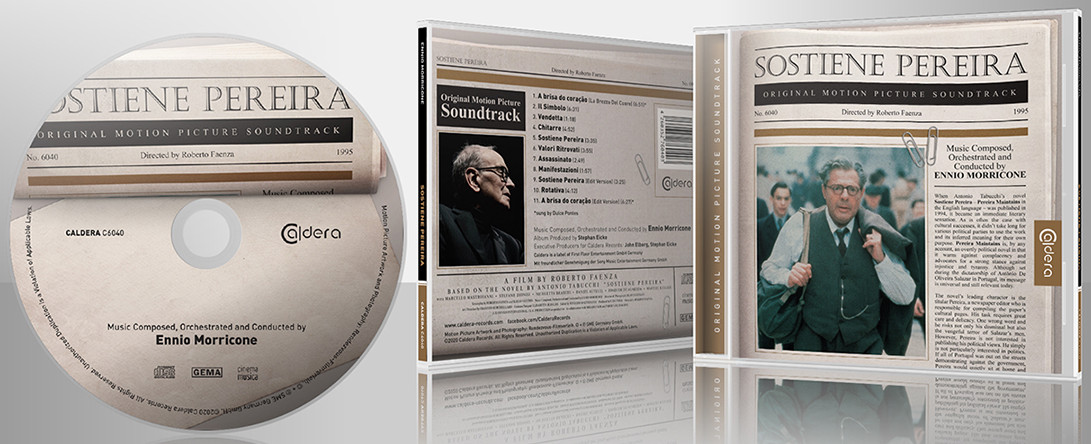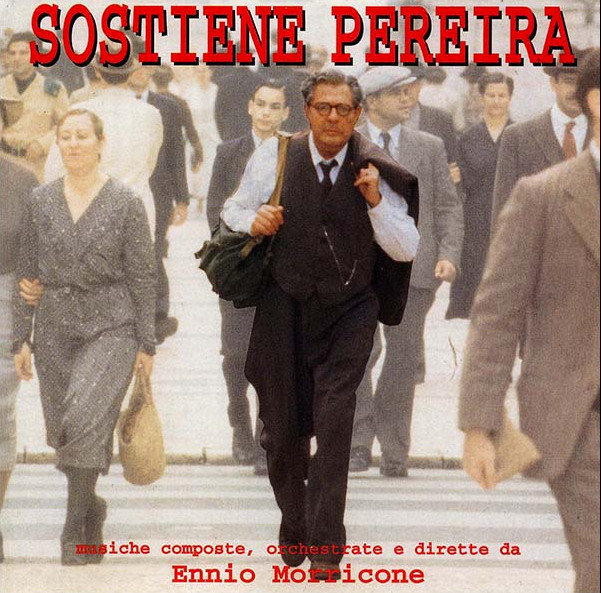|
|||||||
Home--->m-films-025-eng |
|||||||
|
|
|||||||
FA9506M Sostiene Pereira / According to Pereira |
|||||||
Editor's words |
|||||||
When the editor opened the web editor to check the number of this column, he found that the last film of this column was released on June 10, 2017, which has been five and a half years since In the past five and a half years, the editors have almost done their utmost to compile and complete the 3801 pages and 700000 words of 《Ennio Morricone Fans Handbook》" Volume 2 and Volume 3 (see here). It has finally realized a long-cherished wish: to provide a complete and detailed panorama of Morricone's films for global fans. At this time, I am 86 years old Although many of my old classmates and colleagues have passed away successively, I thank God for his care and promise that I can stay in the world for a few more years. Therefore, I can pick up many near-greedy wishes. One of them is to make filme subtitles as much as possible, especially Chinese subtitles, so that Chinese fans can understand and appreciate the mastro's outstanding music works more deeply. After repeated comparison and consideration. I finally selected this 《La Sostiene Pereira》as a new starting point for a series of work in the future Why choose it as a starting point? First of all, this film has appeared in the catalogue of Morricone concerts for many times (see here). Its theme music can still make people feel the novelty and mystery of many soundtracks in his "Bounty Trilogy" and "Past Trilogy". In particular, the theme song 《A Brisa do Coracao / The Breeze of the Mind》, sung by the Portuguese singer Dulce Pontes, the old partner of Morricone, is like many Morricone songs she has sung, hesitating, calling, shouting, and striking people's hearts. It will always attract you to be reluctant to part with, deeply buried in the hearts of the audience, and want to solve the mystery; Secondly, it is the director and actor of the film. The famous Italian director Roberto Faenza and Morricone collaborated on as many as eight films before and after (see 158 items here). More importantly, the famous French actor Marcello Mastroiani, who has cooperated with Morricone for many times, such as FA7401 "Alonsanfang", FA7609 "Todo Modo", FA9007 "Stano tutti bene", FA7803 "Cosi come sei", and so on. Almost every film is fascinating and fascinating. I believe that the film starred by him must be unique and not fall short of people's expectations; Third, it took more than three minutes to introduce the film music (see video 020808-021140 here) in the film "Ennio: The Maestro" released in 2022, describing how the master finally found inspiration from the "tortured" state for the film music. Indeed, this is really a good piece of music, which is a bit like the music of "The Past of the West" and touches the heart. At the end of the film, accompanied by the scene that Pereira decided to run away from home in order to avoid the persecution of the fascist regime, the song sounded again, "... find the secret trapped in our hearts, where the treasure flickers and shakes the soul...", which perfectly summarizes the narrative section of the film and makes people moved: In 1938, Portugal was under the fascist rule of the dictatorship Antonio Salazar. An elderly doctor, Catholic, and newspaper editor who keeps clean and does not care about politics and specializes in French literature, has experienced a series of social situations, such as recruiting assistants, exchanging literature, meeting Jewish exiles on the way, talking with doctors in seaside treatment, listening to the gossip of shop assistants in restaurants, talking with priests, and so on Deeply aware that the society has been boiling with resentment, and people and gods are angry. He began to doubt his philosophy of life. Later, he was monitored by the authorities and reprimanded by the chief editor, which caused him great disgust. Finally, when he took in a young fugitive he had hired, he not only suffered insult and abuse, but also witnessed the fact that the secret police brutally killed the fugitive. He angrily, stood up and made up his mind to adapt his life path. With the support of the newspaper censors, the front-page news of "The young reporter was killed!" was sent out. At the end of the film, he packed his bags, put on his backpack, and with the photos of his dead wife, resolutely embarked on the road of escape, realizing the "self-renewal of the soul" proposed by the French philosopher“ I hope that you fans can draw your own conclusions during watching this film and listening to Molycone's music |
|||||||
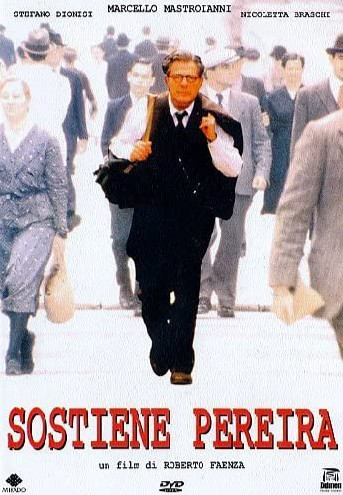 |
|||||||
 |
|||||||
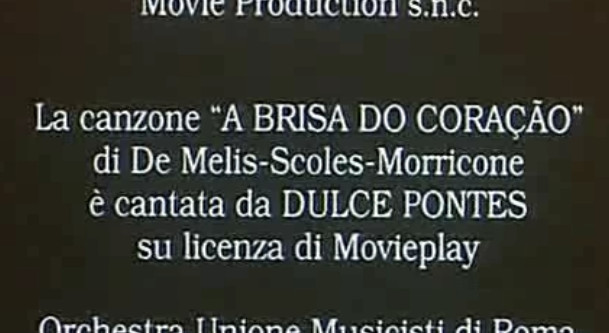 |
|||||||
001-Basic Info |
|||||||
Director:Roberto Faenza |
|||||||
Also Known As: |
|||||||
(original title) Sostiene Pereira Brazil Páginas da Revolução Canada (French title) Pereira prétend France Pereira prétend Germany Erklärt Pereira Hungary Állítja Pereira Italy Sostiene Pereira Poland ...twierdzi Pereira Portugal Afirma Pereira Russia Согласно Перейре Spain Sostiene Pereira USA According to Pereira World-wide (English title) (alternative title) Pereira Declares |
|||||||
Synopsis and Comment |
|||||||
01- Portugal 1938. Pereira is the editor of the culture section of the Lisboa, an unaffiliated evening paper. There is civil war in Spain and the fascists are in power in Portugal, but he concerns himself only with his work (writing biographies of famous writers and translating French novels) and ignores what is going on around him. He hires Monteiro Rossi, an idealistic young man in love with a beautiful communist, as an assistant. He reluctantly helps them when they begin to get into trouble due to subversive activities. Eventually events force him to take a stand. (IMDB) |
|||||||
02 - In Lisbon, during the António de Oliveira Salazar's Estado Novo dictatorship, Pereira (Marcello Mastroianni), a journalist who works in the culture section of a newspaper, discovers the real dark side of the regime when he meets and helps an anti-fascist young man, Monteiro Rossi (Stefano Dionisi). (WIKI) |
|||||||
03 - The Italian original of Antonio Tabucchi's novel, Sostiene Pereira (1994), has been widely translated and adapted to film, garnering major European awards. Its Portuguese protagonist – an overweight widower who edits the culture pages of a second-rate evening paper in 1938 Lisbon, under the dictatorship of Salazar – is therefore already beloved on the continent. Pereira begins by believing that self-censorship to avoid state censorship is common sense, that he need be "nobody's comrade" and that he can convey coded messages of dissent by publishing 19th-century French stories about repentance and resistance. His relationship to politics is like that to dieting – something he knows he ought to attend to, but which is easier to avoid, though doing so may ultimately kill him.
Pereira's awakening comes through a young man, Rossi, who is not only the son Pereira never had, but also, in the way of late 19th-century literature, his other self, his political conscience personified. Several other characters are similar stand-ins for Pereira's conscience: a savvy old priest, a lady on a train and his doctor, who talks about multiple selves. Rossi brings Pereira unprintable leftwing articles, slating the Italian futurist Filippo Marinetti or eulogising the poet Vladimir Mayakovsky, and Pereira starts supporting Rossi and his revolutionary friends. Gradually, he understands that the times demand he be "for" one side and the novel ends with his commitment to a truly selfless political action..... (See here) |
|||||||
04 - The late Antonio Tabucchi’s novel Sostiene Pereira is set in Lisbon in the summer of 1938. The protagonist, Pereira, is a journalist, a veteran reporter on a national daily who now edits the culture page of Lisboa. The paper describes itself as ‘apolitical’ (which means it doesn’t cover the Spanish Civil War) and ‘independent’ (it prints what the Salazar regime would like it to without having to be asked). Pereira is a widower; his closest confidant is the portrait of his wife that hangs in his hallway. He’s overweight, and has a heart condition, not helped by his fondness for omelettes and sugary lemonade.
His semi-retired routine is disturbed when he hires a young man, Monteiro Rossi, to prepare obituaries of famous writers. Rossi’s pieces – either attacking Fascist writers or praising left-wing ones – are all unpublishable. But Pereira pays Rossi for them anyway and puts them away in a folder. Eventually he gets drawn into helping hide Rossi’s cousin, who’s in Portugal recruiting for the Republican cause in Spain, and as one thing leads to another Pereira soon finds himself in serious trouble with the authorities..... (See here) |
|||||||
05 - Based on the homonymous novel by Antonio Tabucchi, this Italian drama is set in Lisbon, in the days when Salazar’s dictatorship was getting into power, in 1932. Pereira is the editor of the cultural pages of a supposedly independent paper. He is a translator into Portuguese of contemporary French literature and is obsessed with the idea of death and the biographies of writers, poets, and novelists. An unexpected event brings him out of his comfort zone, fronting his past, present and future.
Pereira is interpreted by Marcello Mastroianni, who will pass away a few months after the publication of this film. He was awarded the David di Donatello as Best Actor for this role. It also is an occasion to see an icon of Italian beauty and passion in his last season of life, in a film that goes to the essence of cinematography and the meaning of life. Sostiene Pereira is a film that talks about the passage from democracy to fascism, which is an actual theme in many countries across Europe nowadays. Interestingly, the title was translated According to Pereira in English, Pereira prétend in French, Afirma Pereira in Portugal and Páginas da revolução in Brazil......(See here) |
|||||||
06 - "Stop focusing on the past and try to focus on the future." The reporter Pereira met Monteiro Rossi, a boy who had just graduated, on a sultry summer day. When he graduated, he wrote a paper on death, full of life and ideals, and fell in love with Marta. Pereira is old and lonely, tired of fighting with life. Keep thinking about death. He was trapped in the picture of his wife in his apartment, and he confessed to her. In an ordinary tunnel, he lived his life quietly and firmly believed that he had reached the end. He kept asking himself about the death and resurrection of the body. He is old and fat now. He doesn't want to rise again. He wants to relive those youthful dreams freely. (See here IT) |
|||||||
The Stills |
Below:000400 Pereira is the editor of the culture column of Lisbon, Portugal. Under the fascist rule of the Portuguese Salazar dictatorship in 1938, he was alone and indulged in literature, food and ease |
 |
Below:001839 He recruited a college graduate, Rosie, to write an obituary. However, Rossi's article is politically inclined, and his politics are unwilling to be challenged |
 |
Below: 002517 Pereira met a Jewish woman on the train who was about to leave Germany. He was worried about the social situation |
 |
Below:004912
Pereira went to the spa to lose weight and talked to the doctor Dr. Cardoso about his mental distress |
 |
Below: 005243 ,They talked about the "spiritual alliance" and "self repentance" of French philosophers |
 |
Below: 010632 In the church, the priest complained to him and expressed his dissatisfaction with the Vatican |
 |
Below: 011622 He was severely reprimanded by the chief editor of the newspaper because his column published a patriotic comment about French writers |
 |
Below: 011910 Rossi was hunted down and fled to Pereira's house to ask for help |
 |
Below: 012552 He was insulted and attacked when the secret police came to search |
 |
Below: 012837 After the secret police left, he opened the door of the inner room and found that Rosie had been killed |
 |
Below: 013142 Conscience and accumulated resentment broke out suddenly, and he decided to publish the appalling atrocity in the newspaper. Although he was blocked, with the help of his friends, he finally to publish it |
 |
下 013529 Pereira finally got rid of the burden, reborn herself, and resolutely fled from home to find light |
 |
In order to celebrate the 20th anniversary of the website, the film will free be downloaded before February 25, 2023 |
MKV 1.98G 98'19" EN ES PT subtitles can be selected by yourself |
Providing free download in the Morricone Fans Community >>>>>> |
********************************************************************* |
About the OST |
01- Morricone directed 《La Sostiene Pereira》(See here for the VIDEO) |
02 - Caldera Records is proud to present Ennio Morricone’s music for Roberto Faenza’s film “Sostiene Pereira”. When Antonio Tabucchi’s novel “Sostiene Pereira – Pereira Maintains” in the English language – was published in 1994, it became an immediate literary sensation. The novel’s leading character is the titular Pereira, a newspaper editor who is responsible for compiling the paper’s cultural pages. However, Pereira is not interested in publishing his political views. If all of Portugal was out on the streets demonstrating against the government, Pereira would quietly sit at home and read a good book. He is not a supporter but an enabler. His political reluctance is challenged when he meets a young man named Rossi. Pereira’s life soon changes radically. Screenwriter and director Roberto Faenza was a perfect choice to turn the novel into a feature film. The Italian film maker had for decades depicted revolts against tyrannical governments. Here, he cast Marcello Mastroianni as the overweight editor who suffers from a heart problem. Popular French actor Daniel Auteil played Pereira’s doctor, Nicoletta Braschi (“Life is Beautiful”) and Marthe Keller (“Marathon Man”) were splendidly cast in minor roles. The director had tasked Ennio Morricone with writing music for his feature debut “Escalation” in 1967, and they had worked together ever since. By 1995, their collaboration spanned seven films, eight including “Sostiene Pereira.” The latter is one of Morricone’s most ingenious works for a Faenza film. It is intricate and subversive, subtle and stimulating. For the first time, the composer worked with Portugese singer Dulce Pontes when they recorded the song “A brisa do coração” which makes its appearance several times in the film and is presented here both in its original form and in a shorter, edited version. His score subtly features Fado, a Portugese style of music in which a woman as the singer is accompanied by one or two guitars. Morricone’s score consists of several themes and motifs the composer cleverly weaves together. “Sostiene Pereira” starts with a rhythmic pattern for wood blocks, one that recurs throughout the score and serves as its backbone before several instrumental groups consecutively join in with various motifs. The score is intricately developed in that Morricone uses all these various separate elements in other cues but in different arrangements and constellations. Ennio Morricone’s rich and vibrant score was released on CD in 1995. In collaboration with Sony Music Germany, we are proud to re-release it with detailed liner notes by Stephan Eicke, featuring Christopher Slaski’s precise transcription of the film’s main theme for study purposes. The 40th CD-release of Caldera Records also features elegant artwork by Luis Miguel Rojas. The CD was produced by Stephan Eicke and John Elborg. (See here) |
03 - A political film set in Portugal in 1938, Sostiene Pereira stars Marcello Mastroianni as a newspaper editor who makes a stand against the oppressive forces at work in his country. It was the eighth collaboration of nine between director Roberto Faenza and composer Ennio Morricone, and also the start of another important collaboration for Morricone. This was the first time he worked with Portuguese Fado singer Dulce Pontes, whose powerful vocals are lent to the song “A Brisa do Coracao”, which opens and closes the album (and is probably its strongest feature). They have since worked together on a full album (the wonderful “Focus”, in which she sings 15 Morricone songs) and on another film score (La Luz Prodigiosa); and she has been a regular performer at his concerts. The song here is a stunner, a beautiful melody which perfectly showcases Pontes’s voice.
The score is not quite so easy to enjoy, impressive though it is. Much of it is laden with suspense, with low-end piano, brass and percussion dominating. It’s very effective, and somewhat reminiscent of the composer’s work on the various classical “social films” he scored in the late 1960s and early 70s, but I wouldn’t listen if you have a nervous disposition! There’s a gorgeous classical guitar piece in the middle which seems rather out of place, but it’s a beauty so I don’t care. Otherwise, the highlights are where Morricone extracts the melody from the song and has the orchestra play it – it doesn’t quite have the power of the vocal version, but is still impressive, particularly when guitars join in. This is the sort of Morricone score that almost gets lost and forgotten about because of the greatness of what is elsewhere in his body of work, but it’s certainly worth seeking out – especially for that song! |
See here for more music >>>>>> |
January 1, 2023 |
|
||||||||||||||||||||








